The Ministry of Defence has disclosed new details of a wargame exercise conducted with industry in late 2024, designed to test the resilience of Britain’s defence industrial base under wartime conditions.
The exercise, described as the first of its kind, highlighted serious structural weaknesses in current supply chains and a lack of mutual understanding between government and industry regarding mobilisation for large-scale conflict.
The findings were shared in a letter from MOD Permanent Secretary David Williams to the House of Commons Defence Committee, dated 11 July 2025. The letter responds to questions raised during a committee session on 2 July, including question 70 on Defence Equipment and Support (DE&S) and its engagement with the private sector.
The exercise was informed by conclusions from the MOD’s own Planned Force Testing-10 as well as the US-led Globally Integrated Wargame (GIWG). Both concluded that in a new era of great power competition, industrial preparedness is now a critical component of conventional deterrence and strategic credibility.
According to Williams, “our supply chains are largely designed for peacetime operating, with minimal resilience, not war.” He noted that industry possesses only a limited understanding of what defence would require in terms of volume and speed during a conflict, while the department itself has an incomplete grasp of what industry can realistically deliver without significant adjustment.
To address this gap, a new wargame series was commissioned and designed collaboratively across MOD entities, including DE&S, the Front Line Commands, and industry partners. The December 2024 exercise was conducted over two days and presented participants with a scenario that included operational demand, mobilisation timelines, and potential adversary interference in industrial processes.
The intent was to provide a “safe-to-fail” environment in which realistic pressure could be simulated, allowing both sides to test assumptions and identify shortfalls. The scenario was framed around sustaining critical defence supply chains during a period of escalating conflict, with particular emphasis on decision-making requirements before the outbreak of hostilities.
Four key themes emerged from the event. First, participants agreed that the UK is already operating in an environment of “credible sub-threshold threat and activity.” Second, the game raised questions about the relationship between government, society, and its armed forces, including industry’s role in a national defence posture. Third, the need to identify what actually provides strategic leverage in industrial planning was underscored. Finally, there was broad recognition that timelines must accelerate across the board.
The exercise generated four specific work packages to be taken forward: improving secure communications between MOD and industry; sharing threat briefs and, where appropriate, classified intelligence; identifying regulatory quick wins that could remove bottlenecks; and expanding the wargaming methodology into the boardrooms of major defence suppliers.
Williams noted that industry participants showed a “tangible” appetite for closer collaboration, reflecting a recognition of mounting geopolitical risk and persistent supply chain disruption.
He described the exercise as a catalyst for cultural and procedural change, and framed it as part of a broader effort to deliver on the ambitions of the Strategic Defence Review, the Defence Industrial Strategy, and the ongoing defence reform programme.
“The evolution proved that as the world changes, we must change too,” Williams wrote. He concluded by saying that the overarching challenge now is to identify and develop the “big idea” that will drive the next phase of mobilisation planning, industrial readiness, and deterrence credibility.


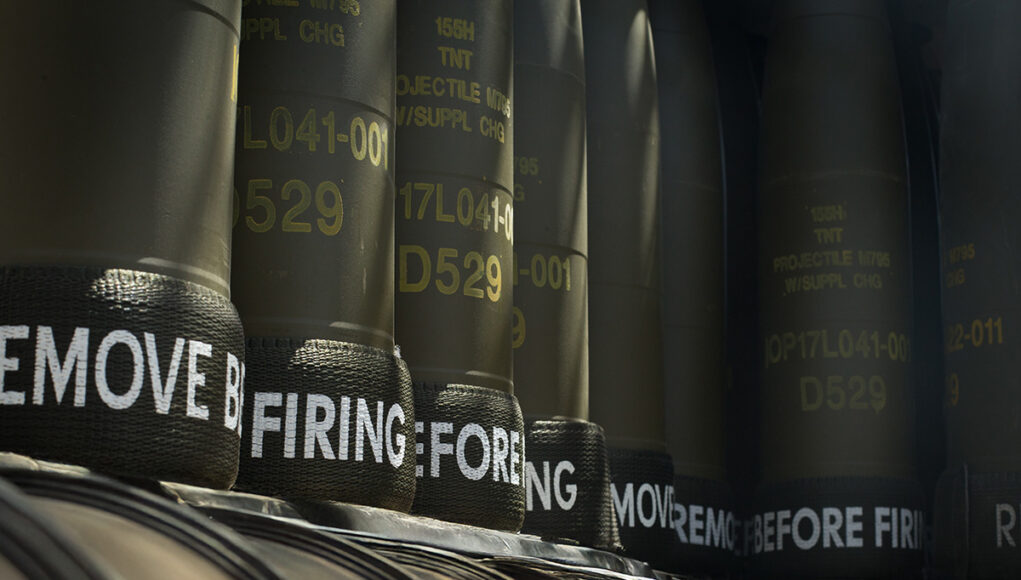
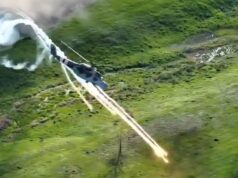
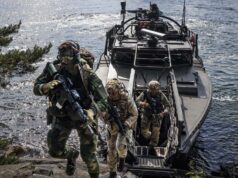
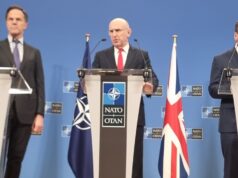
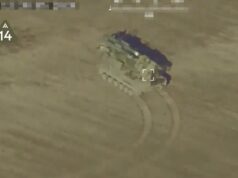

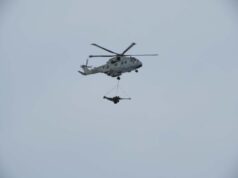


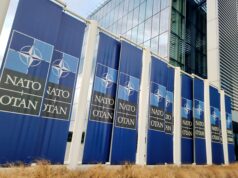

look forward to comments, complex weapons have a global supply chain which ends pretty quickly even if hostile state only takes sub threshold action (below level that justifies UK reprisal)
How did the fire start at DDH? Wargaming is important but so is telling the truth should we really wish the British public to take on-board our march towards future conflict.
I’m not sure the British public show much interest in such things – they expect their Government to do that.
Currently we are running a peacetime military so I am not surprised either industry or Government are engaged in doing anything else.
We should move to a war footing. We can sell / utilise missiles in Ukraine as well as stock our shelves.
The problem is exactly the same as PPE. Previously we were geared to getting the quantity we need from abroad in a timely manner and at a decent price. War changes that it doesn’t matter if the enemy is Russia or a virus.
DB, Sky News reported that ‘faulty equipment’ was suspected. Curiously there has been nothing revealed since in OS. We also need to know how in April 2024, an explosion ocurred at BAE Systems factory, Glascoed, Monmouthshire.
Petty British criminals had been hired by the Wagner Group to carry out sabotage in the UK. (fire on Leyton, East London warehouse owned by a ukrainan businessman – Old Bailey trial in July 2025)
Weaknesses were not discovered ‘in’ the wargame, they were discovered ‘by’ the wargame.
That’s exactly how I read it too.
I always find it pays to read things properly. 👀
Misleading use of the English language is the norm in the press these days. The classic one is, “A man was found guilty today of mass murder at the Old Bailey.”
Ah, that’s a good example, I’ll bet not many will question that nor this particular one.
“Misleading use of the English language is the norm in the press these days”
“Up with this, we will not put!” (Winston Churchill).
I would imagine a lot more weaknesses than strengths were found in the wargame.
That should be the case in every wargame, you learn more from failure.
Change will come, that’s no challenge. The Latin tag is “tempora mutantur et nos mutamur in illis”: times change and we change with them. This is not an injunction to change. We will change no matter what. The questions left are “to what” and “how”. Williams “big idea” is the usual set of small ideas that are opposed every time.
That we spend more on security vetting so we can push anyone through SC clearance in a week and through DV in two. That we cross-recognize industry security clearances within FVEY and bilaterally where appropriate (France, Norway, etc). That we extend the digital backbone into industry (or equivalent). That we pay industry for the ability to step up production on request and we test that ability for one month every two years with actual orders. That we insist on having suffcient stockpiles and spares, and if the supplier can’t or won’t play ball (I’m looking at you F-35 JPO) we think twice before getting into bed with them in the first place.
They are opposed because they appear at first glance to be inefficient. If only the Treasury would keep looking after that first glance! Efficiency is the enemy of resillience.
We extend the digital backbone to SF HQ who will download it as an excel and email it out to…..
But you are right in the main.
However, the reason we no longer have rolling lines like we did in The Cold War is that MOD stopped giving the multi year trickle statement contracts to keep lines running at low productivity.
The reason we don’t have spares stocks is because they are ‘expensive’ when accountancy rules.
Think is if you put a proper accounting value on the underutilised assets and stopped using 101 accounting for kids then the spares stockpiles actually do make sense rather than just in time nonsense as you get higher utilisation rates from expensive assets.
This actually applies to a lot of businesses but business school culture and teaching is so poor that it creates hoards of drones who believe outsourcing and just in time are the only solutions rather than actually being major business problems.
The not manufacturing little bits, like fastenings, is a very major problem when it comes to the tiny bits of dual use materials needed for everything military that will become unavailable for the far east overnight if something kicked off.
I have never seen anyone else say this and is my biggest issue with manufacturing and software development business I work in. Value, Quality and customer service are not line items managed by those with MBAs – whose whole world lives in “perfect” systems; they don’t even bother to add in variance statistics to atleast try to make it closer to reality.
I wish SC clearance was that quick, a month plus at the moment 😭
No surprise there, this is very much the result of decades of flawed thinking/ short-termism.
MOD and governments burying their heads in the sand, ignoring or downplaying potential threats.
Thinking the US will always be there to back us up
Letting important military industries go bust.
Armed forces must do more with Less.
FFBNW
Scrapping/ early retiring of perfectly good kit (Challenger 2 comes to mind).
Many parts no longer have a manufacturer as they are long gone and no reserve stock kept. Some not available parts are on the internet for sale, MOD rules only allow purchase from approved companies. Approved companies can then source from where they like. If a part has to be made its put out to tender it takes three months and then may have to wait up to six months for the company to fit it into its production schedule. Babcock allowed challenger 2 wheel nuts which cracked and fell off and sub standard bearings to enter the supply chain before they introduced full traceability, correct packaging and part number rules. They tried to not source as many parts from BAE to save money.
“ Williams wrote. He concluded by saying that the overarching challenge now is to identify and develop the “big idea””
Maybe the big idea is to actually spend domestically big money with UK companies to get the supply chain working and incentives to use UK manufactured bits (not assembled) to grow the value chain?
They had to wargame that? I’m a civilian and could have told you that and then also the solutions.
Anything to come out of this, whilst welcome, is probably too little, too late.
OMG. It’s not all that surprising that after decades of nothing but cuts, penny packet purchasing spread out over the longest term possible that our defence industrial base has atrophied.
Give real assurance to the industries and they will invest and ensure production capacity is set for when it is needed.
So a firm order for 30-40 sloops of war type 91,92+93
Order another batch of type 26+ type 31s
Give rheinmetal the rest of the C2s to upgrade to C3
GBAD and drones, drones, drones and offensive missiles
Order another tranche of typhoons- the RaF only needs 24-36 more typhoons to massively strengthen its order of battle- seeing the RAF through until Tempest
My point is valid. We must know what we want our force structure to be so just get the bloody orders in and industry will up it’s game.
Gosh really? What a surprise. Not.
And please stop letting foreign companies from buying key British companies, including American. When times are good and the economy is running smoothly these British entities will continue perhaps even grow, but when times are hard they look after their home industries, and move IP and manufacturing to their home country.
It doesn’t say which armies they uses in their wargame. I would have picked either Eldar or Tyranids.
Not really sure why they needed a simulation to see how horrendously fragile, vulnerable, leaky and inefficient our supply system is. COVID already did that. Still, I’m glad they’re at least making an effort.
We need dual purpose manufacturing capability, keeping production of missiles, bombs etc in peacetime doesn’t make sense when the opposing political party is shouting how ineffective government is and how high taxes are. What we need is the capability to be able to switch from manufacturing something useful in peacetime to being able to manufacture something critical in a time of war.
Enemies will target the weakest link of our sovereign nation and at the moment that is our ability to churn out cost effective weapons.
I’m hoping we can shift skilled workers over from automotive to defence production.
This surely came as no surprise. Even in the last 10 years of the Cold War only lip service tended to be paid to the role of the defence industry in wartime/mobilisation. Stocks of munitions and missiles were inadequate even then, and the military would have run out well before industry could have ramped up or restarted production. So at least 40 years has passed since anyone on the military, procurement or industry sides has had any experience in contingency planning for wartime industrial mobilisation in a high end war. And during that 40 years senior officials frequently told industry that there would never again be an “industrial war”, and hence there was no military requirement to retain a national defence industry at all, let alone to pay for maintaining surge/mobilisation capacity.
PR perhaps it can be seen as light tech industrial war in ukraine. both sides assembling drones, ukraine learning and adapting quickly. russia has advantage having a huge landmass to conceal production and having suppliers iran, n korea, and china.
No way. Really ?
Never would have expected that 🙄